DASH and the Data Modernization Initiative
Data Across Sectors for Health (DASH) is proud to be providing technical support to organizations seeking to upgrade their information processes and systems through the CDC’s Data Modernization Initiative (DMI). The DMI is part of the CDC’s response to issues in our health information systems that COVID brought to the fore.
Next Stop: Resilient Public Health Infrastructure
The CDC is in the midst of implementing the Public Health Infrastructure Grant (PHIG). This 5-year grant aims to build a foundation for healthy and resilient communities through three main focus areas: workforce, foundational capabilities, and data modernization.
The Data Modernization Initiative (DMI), a cornerstone of that last focus area, is a multi-year, billion-dollar initiative to upgrade data and surveillance processes, practices, and policies. The goal is for health practitioners, policymakers, and the public to receive real-time, reliable, accurate, and representative information during health threats — and to be able to detect and stop events before they become bigger problems.
The CDC is distributing some PHIG funds to three national organizations to provide technical assistance to health departments, including the National Network of Public Health Institutes (NNPHI). NNPHI has in turn asked DASH to be one of the entities providing technical assistance to organizations and health departments who are working to modernize their technology infrastructure.
PHIG, and the DMI, are part of a host of efficacy- and equity-focused CDC initiatives implemented in the wake of COVID. Others included the COVID health disparities research grant, which had a focus on data sharing; the Data Modernization – COVID funding, which the CDC granted to ELC (Epidemiology and Laboratory Capacity) recipients; and a grant for tribal public health capacity.
You can learn more about the CDC’s plans here.
Our Work with the DMI, So Far
Our first step was to learn about the state of data modernization in the field from public health practitioners, health department leaders, subject matter experts, and secondary research. That lasted much of 2023.
Now, the next phase, already started even as we wrap up the first, is to turn that research to action by providing help to organizations who seek it.
Requests for support range from simple week-long projects to complex, potentially months- or years-long shifts. Issues vary tremendously depending on location, population, history, and so on. For example, here are three requests that show the range of size and type:
Needing GIS and Python expertise to create a digital spatial overlay of health information
Looking for a thought partner for help sussing out equity issues around hiring interns
Seeking support breaking down data silos within a health department to better understand program impact
We are excited to be doing the work of helping organizations serve their communities more equitably and more effectively.
One of the themes we’ve seen is an interest in identifying the best way to spend the funding they have been provided. Underlying this theme, really, is a concern about sustainability. It’s nice to be granted a wad of cash. Really, it is! But many issues that need redress are recurring or systemic. You can’t hire a person with a one-time grant, or set up a maintenance system, or take on a multipart project.
This is not a new concern. It is a theme we see throughout our work with data-sharing collaborations. That is why financial sustainability is featured on our DASH Framework and is a priority for our Incubator program, now underway. We look forward to continuing discussion around this issue, here at the DASH program office as well as with our partners, grantees, and technical-assistance recipients.



